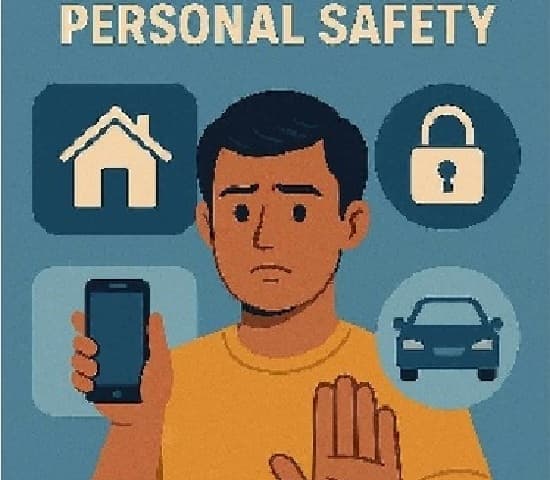In today’s world, staying safe is more important than ever. Whether you’re at home, outside, or online, knowing how to protect yourself can help you feel more confident and secure.
This guide is here to help you understand what personal safety means, why it matters in 2025, and how you can stay safe with a few simple habits.
What Does Personal Safety Mean?
Personal safety means keeping yourself safe from harm. That includes physical harm (like theft or violence), emotional harm (like bullying or abuse), and digital harm (like scams or hacking).
In 2025, personal safety also means being careful online, knowing who you can trust, and using tools that help keep you safe in everyday life.
Why Is It Important Today?
Our world has changed a lot. We use phones, apps, and smart devices every day. But these can also bring new dangers, including:
- Online scams or fake websites
- Hackers trying to steal your info
- People watching your location on social media
- Unsafe situations when walking alone or traveling
When Do You Need to Think About Safety?
Personal safety matters in many everyday situations, such as:
- Walking home at night
- Using public Wi-Fi at a café or airport
- Meeting someone you found online
- Posting personal info on social media
- Traveling or staying in a new place alone
Simple Tips to Stay Safe
At Home
- Always lock your doors and windows.
- Don’t open the door for strangers.
- Use a peephole or camera if possible.
- Keep a list of emergency contacts.
At Outside
- Walk with confidence and stay alert.
- Don’t look down at your phone while walking.
- Let someone know where you’re going.
- Avoid dark or quiet places when alone.
Online
- Use strong passwords and turn on two-factor login.
- Don’t click on strange links or download random files.
- Keep your social media private.
- Don’t post your location in real-time.
Helpful Tools You Can Use
You don’t have to do it all alone. There are tools that can help, such as:
- Personal alarms – Loud sound can scare away threats.
- Pepper spray – A simple self-defense tool (check if it’s legal where you live).
- Location-sharing apps – Let your family or friends know where you are.
- VPNs and password apps – Keep your online info private.
Build a Safety Mindset
Staying safe also means building habits that protect you. Here are a few tips:
- Trust your gut—if something feels wrong, leave.
- Keep your phone charged before going out.
- Take a self-defense class if you can.
- Have a plan—know who to call and what to do in an emergency.

